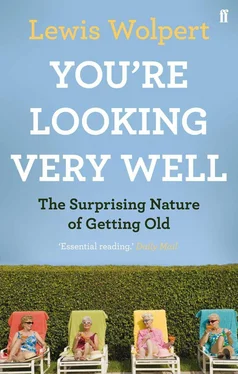Seventy per cent of care in the home in the UK is now carried out by private companies. All councils have a duty of care to appoint only those private companies whose record of competence they can verify. In the UK the choice of those who will care for the elderly has recently been severely criticised: the NHS has had a special kind of auction to appoint organisations which will care for the elderly, particularly those with dementia, and those involved were asked to reduce their costs and then participate in reverse auctions, where bids are driven down, not up—the lowest bid being the winner of the contract. To choose a carer on such a criterion seems immoral, and one company that won such an auction had the contract removed a few weeks later as their caring was so poor. To ensure that proper care is carried out, spot checks on their performance should be mandatory. Councils must also insist that carers are given professional training. Many carers are young, inexperienced, paid low wages and left to cope virtually on their own. Whistle-blowing on bad employers must be encouraged.
Concern is also growing over the expansion of home-based care for the elderly after examples of neglect have been reported. Poor standards and numerous breaches of regulations were shown in an investigation by the BBC’s Panorama programme. There was evidence that some old people were being left alone for many hours; in one case, an 89-year-old woman was left for 24 hours before being found by her son lying in excrement. It seems that paid-for carers are not allowed enough time to give adequate care to vulnerable older people, and support services do no more than provide the minimum standard of care that they can get away with.
One suggestion is that neighbours should be paid to look after the elderly, as they already know and are friendly with the person and could provide personal care and also meals. Britain would do well to follow the French example and pay people who take time off to look after a dying relative or partner. Charities describe the care system as being in ‘crisis’ and one that will be dealt with head-on only when society accepts that the needs of the elderly are as important as those of newborn or disabled children. The number of over-85s will reach 4 million in the UK by 2051; for many of these a care home or nursing home will probably be the ultimate destination.
* * *
Many dislike being in a care home and so avoid communal areas and spend most of their time in their rooms. Talking about dying is taboo. There is some concern that families do not visit inmates as often as they might. There is a tradition that pupils from schools visit lonely old pensioners both to talk and to help with housework. This may not continue as both pupils and pensioners may have to be officially vetted before such regular visits in order to avoid any abuse. This is a great shame, as even when a fish tank is brought into a nursing home the patients crowd around it and conversation increases. There is a test programme in Toyota Memorial Hospital in Japan where robots monitor and interact with patients, and elsewhere ‘companion robots’ are being developed which, it is claimed, could lead to some improvement in Alzheimer’s patients. Norway is also considering the use of robots in the future to combat staff shortages.
Caring for the severely ill elderly can be difficult and stressful. After two strokes, one patient was reported to be unable to even hold a child’s plastic drinking cup, and is also unable to reach the buzzer to summon staff. While his room at the home is clean, tidy and bright, there is nothing to occupy his mind as he cannot see or hear well enough to read or watch the TV, and conversation is difficult. His only stimulation comes from family visits, but they can be days apart and upsettingly brief. He shouts and cries as his frustration surfaces, which only adds to the family’s feelings of guilt and helplessness and increases their desire to cut the visit short.
Sir Michael Parkinson, who was appointed by the government in 2008 to promote dignity in care homes, described some homes he had seen as ‘little more than waiting rooms for death’ and said he had been appalled by letters members of the public had sent him. One had written saying her mother had been left naked, covered in urine and in full view in a side room at a hospital, while others had complained of patients’ use of alarm bells being ignored for so long that they soiled themselves. Older people in hospitals and care homes are being left without enough food and drink in incidents that are ‘absolutely barmy and cruel beyond belief’. Parkinson said staff and managers blamed bureaucracy for stopping them delivering more dignified care.
About 20 per cent of deaths in the UK occur in nursing or care homes. Often understaffed and with underpaid and poorly trained employees, many nursing homes endanger the lives of their patients. Those living in nursing homes receive poorer care than those living at home, because they are not given beneficial drugs; there is poor monitoring of chronic disease and overuse of inappropriate or unnecessary drugs. No study has examined the overall quality of care given to elderly patients in UK primary care, or has judged the quality of care against agreed, explicit standards in patients living in nursing homes compared with patients living at home. An example of problems is the case of a 94-year-old who was given notice to quit after she complained about the executive’s dog, which kept leaping up at her. She is frail, has restricted vision and arthritic limbs, and she is unable to dress or clean herself.
Patients with dementia and related mental health problems need an enriched psychosocial environment which meets their need for human contact and personal growth. Over 820,000 people in the UK live with Alzheimer’s and other dementias, costing the UK economy £ 23 billion per year—more than cancer and heart disease combined. Dementia research is severely underfunded, receiving 12 times less support than cancer research, even though around one third of us will suffer from some form of dementia before we die. There is as yet no basic training for healthcare professionals on how to understand and work with people with dementia. Dementia affects not just its immediate victims but also other residents forced to share their final years with sufferers. And it places a huge burden on the staff who have to look after the patients’ most intimate needs. The traditional cosy view of an old people’s home has long gone.
More than 2 million older people over the age of 65 in England have symptoms of depression‚ but according to a report by Age Concern the vast majority are denied any help. Falls by older people in nursing-care facilities and hospitals are common events that may cause loss of independence, injuries and sometimes death as a result of injury. Effective interventions are important and will have significant health benefits. The prescription of vitamin D reduces falls, as may a review of medication by a pharmacist.
Yet thousands of doctors specialising in the care of older people believe the NHS is institutionally ageist, a survey suggests. One third of doctors thought that the old should not get various kinds of surgery as it would not last them very long. Another survey found that almost one in three nurses would not trust the NHS to care for an elderly relative who was malnourished. Old people are left hungry on wards. Discrimination against the old also involves, for example, long waits for hip and knee replacements which people over 65 need most. A British Geriatric Society survey of 200 doctors found that more than half would be worried about how the NHS would treat them in old age. Dr Blanchard, who works in psycho-geriatrics, told me that there is little evidence for ageism in his area, but what will probably happen with the coming financial cuts is that his patients will be put back into general psychiatry, and this may lead to discrimination as the cost of their care is compared to that of younger patients.
Читать дальше












